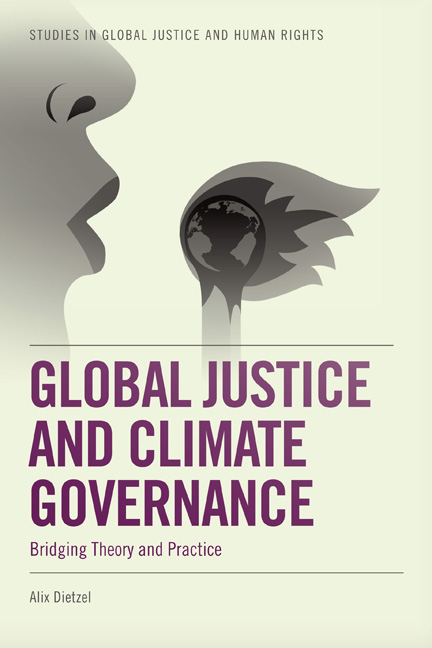Book contents
4 - Bridging Theory and Practice
from Part II - Assessing Climate Governance
Published online by Cambridge University Press: 24 October 2019
Summary
INTRODUCTION
Having developed a climate justice account in Part I, the book now turns to assessing the global response to climate change in Part II. This assessment will focus on both multilateral (state) and transnational (non-state) responses, and in doing so make sense of the ‘big picture’ of climate change (mis)management and the injustices that come along with it. Although some climate governance scholars are beginning to turn their attention to climate justice (Bulkeley, Edwards and Fuller 2014; Hale 2016; McKendry 2016), and some climate justice scholars have begun to explore and assess the role of non-state actors (Heyward and Roser 2016; Moss 2015; Maltais and McKinnon 2015), there is a lack of systematic research that normatively evaluates transnational climate change responses, or explores how these compare to multilateral efforts. In other words, there remains a significant gap between theory and practice. The book aims to bridge this gap, by illustrating that climate justice theory can be used to assess climate change governance, both multilateral and transnational. In order to begin bridging the gap, the current chapter explains exactly how this assessment will be conducted. The chapter is organised as follows.
First, the chapter provides an overview of global climate change governance, clarifying what aspects of the global response the book focuses on. Next, the chapter explains why actors who operate within climate change governance processes have a responsibility to act on the demands of justice defined in Part I of the book. The chapter grounds the responsibility of these actors in their capability to enable the three demands of climate justice by restructuring the social and political context to make this possible. Following this, the chapter will consider which actors are to be held most responsible if both multilateral and transnational climate change governance actors have the capability to restructure the context. Finally, the chapter develops a methodological framework for assessment. This framework is based on a four-point hierarchy that can be used to investigate to what extent global governance actors enable each demand of justice. In this sense, the current chapter sets out a plan for cosmopolitan assessment of climate governance, and thereby begins to bridge the gap between those who focus on climate justice and those who research the global response to the climate change problem.
- Type
- Chapter
- Information
- Global Justice and Climate GovernanceBridging Theory and Practice, pp. 93 - 116Publisher: Edinburgh University PressPrint publication year: 2018



